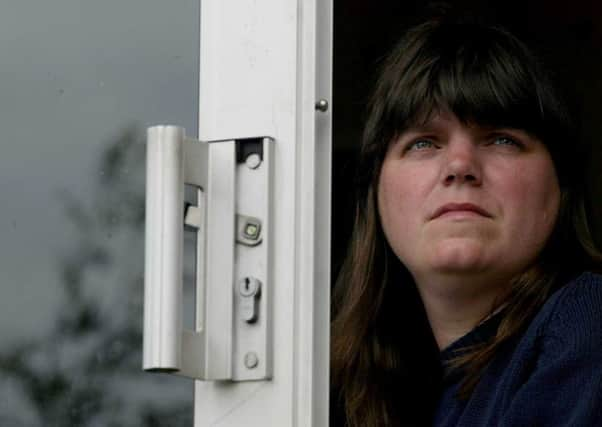Dani Garavelli: Jill Saward's courage changed face of justice


Some crimes take on an almost mythic quality; so widely were they reported on at the time, so embedded are they in our culture, that they come to represent something larger than themselves. The Great Train Robbery, the Kidnap of Stephanie Slater, the Murder of Meredith Kercher, the Disappearance of Madeleine McCann – all personal tragedies – are woven into our collective past. Some aspect of each offence – the setting, the personality of the protagonists, the merest hint of a conspiracy – fixed it in the public eye, and kept it there, with the result that, decades on, we can still recall the names and faces of those involved.
The Ealing Vicarage Rape, carried out in 1986, is one such crime. It was the perfect tabloid story: the daughter of a vicar, a virgin no less, raped in broad daylight during a burglary as her father and boyfriend were tied up and beaten unconscious. It was a brutal yet uncomplicated tale of goodies and baddies, where the perpetrators were no-mark druggies and the victims good, middle-class Christians.
Advertisement
Hide AdAdvertisement
Hide AdBut the Ealing Vicarage Rape also highlighted, for perhaps the first time, the utter contempt with which rape victims were treated, regardless of their social status; and it gave us a fierce new champion – the formidable Jill Saward, who spent the rest of her life campaigning against sexual violence.
Last week, Saward died of a brain haemorrhage at the age of 51. She would have liked, she once said, to have become something other than “the Ealing Vicarage Rape Victim”, but understood it would never happen. The first woman to waive her right to anonymity, she traded it for the opportunity to transform attitudes, and her legacy was a legal system which – while far from perfect – is much-improved. She also confronted her own unjustified feelings of shame head-on in the hopes future victims would be spared her burden.
Saward taught us about the human capacity for forgiveness. She refused to harbour feelings of hatred or revenge towards her attackers, telling one interviewer that “you’re the one that gets damaged in the end”. Later – at his request – she met Robert Horscroft, the only one of the three defendants who did not rape her, and accepted his apology. “It’s not a question of whether you can or can’t forgive. It’s a question of whether you will or won’t,” she said.
The events of 6 March, 1986, were horrific; but almost more shocking was what happened next. Newspapers reported the crime had taken place at the Ealing Vicarage, so Saward was effectively identified. Then her calm demeanour at the trial led the judge, Mr Justice Leonard, to proclaim her trauma “was not so great” and to hand lighter sentences to her rapists than to Horscroft, who had been convicted of aggravated burglary.
As a result of Saward’s dignified response, several things happened: the law was changed to close a loophole over the identification of victims and to allow the prosecution to appeal against too lenient sentences. She also campaigned to raise judges’ awareness of the ordeal of rape victims. Listening attentively was Mr Justice Leonard, who bitterly regretted his statement. On his retirement, he referred to it as “his blemish” and said that “like Mary Tudor and Calais, it will be written on my heart”.
Later, Saward wrote a book in which she talked about the impact of the rape; she successfully campaigned to prevent rape defendants cross-examining their alleged victims and helped found JURIES – (Jurors Understanding Rape is Essential Standard). She fought for better facilities and support for rape victims, and against the recent proposal that those accused of rape should be granted anonymity until conviction.
Yet Saward’s legacy is not unproblematic; though she helped challenge some myths and stereotypes about rape, the circumstances in which the Ealing Vicarage attack occurred reinforced others. Her rape, after all, was the archetypal one – a woman randomly attacked by violent strangers. But most rapes are not like this. The circumstances in which they occur tend to be less clear-cut. The woman may be wearing revealing clothing, her attacker may be known to her, drink may have been consumed. She may have a reputation for promiscuity. She may be a sex worker attacked by her client, or a wife attacked by her husband.
In these circumstances, prejudices persist when a case like that of the footballer Ched Evans comes into the public domain, voices, male and female, suggest that – by virtue of short skirts or excessive alcohol consumption – the accuser had placed herself at risk. And, as the woman at the centre of the Evans’ case knows only too well, anonymity is not so easily preserved in the age of social media. It doesn’t stop someone being targeted and their reputation trashed.
Advertisement
Hide AdAdvertisement
Hide AdSaward didn’t always challenge such prejudices. She once provoked the ire of feminists by suggesting the offence of rape should be graded to distinguish between the violent rape of a random stranger and date rape. More controversially still, she seemed to suggest young women who dressed provocatively were doing nothing to help themselves, a comment widely interpreted as victim-blaming. Nevertheless, Saward continued to stand up for women raped in very different circumstances to her own. Just last year, she criticised the decision to allow evidence on the alleged victim’s sexual history to be revealed as part of Evans’ retrial.
Saward’s death prompted many tributes. One of the most poignant was a tweet from the singer Alison Moyet which finished: “More light in one short life than pain could ever dim.” Saward was a shining example to those who have followed her; she showed what could be achieved. With much work still to be done to combat male sexual entitlement, raise awareness on consent and improve the conviction rate, it is for others now to take up her torch.